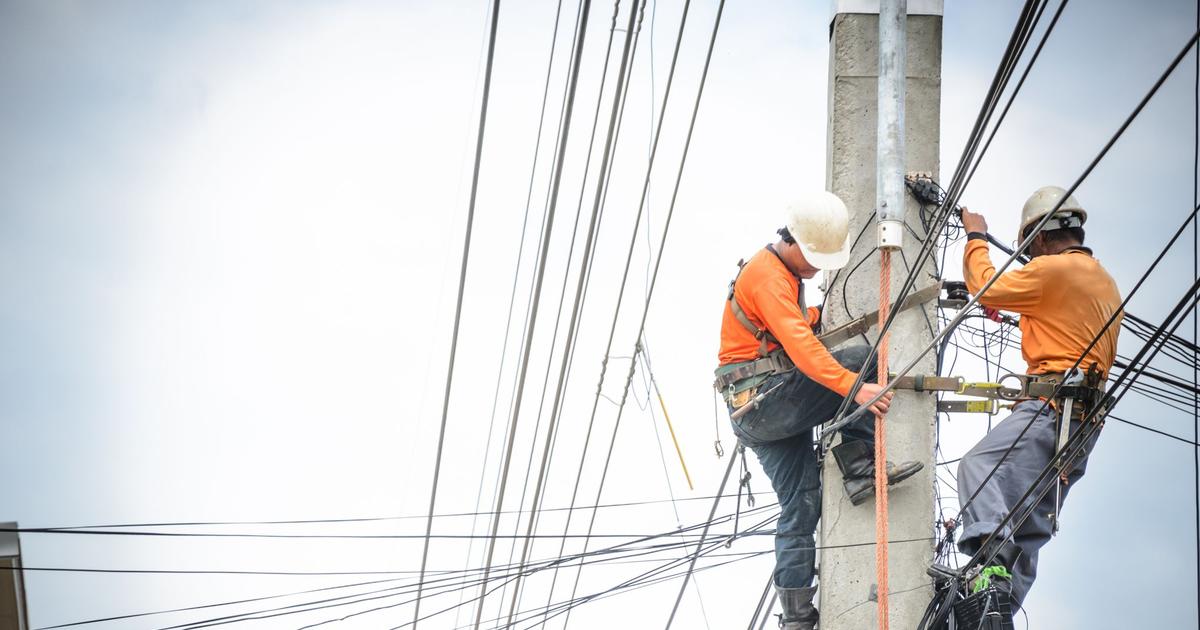Enlarge image
High voltage line in Lower Saxony
Photo: Julian Stratenschulte / picture alliance / dpa
The expansion of the German electricity grid is likely to progress much more slowly in 2021 than in the previous year.
That comes from an answer of the Federal Ministry of Economics to a question of the Bundestag member Oliver Krischer.
According to the paper available to SPIEGEL, only around 120 kilometers of the new extra-high voltage lines have been built this year, which are planned for the energy transition as part of the Federal Requirements Plan (BBPlG) and the Energy Line Expansion Act (EnLAG).
In 2020, a total of around 341 kilometers had been built.
In 2019 it was around 203 kilometers, in 2018 a good 171 kilometers.
The expansion of the power grid is considered to be a central component of the energy transition.
Because the energy system is becoming more decentralized, there are more and more fluctuating power sources and more and more feed-in points.
In addition, a considerable amount of green electricity is generated by wind farms at sea - and this electricity first has to be transported to the industrial-rich south.
Overall, the expansion is well behind plan.
Of the approximately 12,234 kilometers that the responsible Federal Network Agency estimates for the energy transition, according to the latest figures from the Ministry of Economics, only 1739 kilometers have been completely completed.
For more than 3,400 kilometers of the planned lines, there is not even an approval process in progress.
The main reasons for the slow progress are complicated bureaucratic requirements and procedures as well as citizens' initiatives that try to delay the construction of new lines in their area - and are often successful with it.
The federal government had to partially overturn existing plans.
The power lines are already partially overloaded due to the slow line construction - which leads to economic waste.
If there is too much electricity in the grids, the conventional power plants first have to shut down their production.
If that is not enough, green electricity systems must also be curtailed.
Since the purchase of their electricity is actually mandatory, the system operators are compensated as a result.
The costs for this are added to the consumers' electricity bills, as are the costs for other compensation measures in the networks.
According to estimates by the Federal Network Agency, up to 1.34 billion euros in compensation for so-called feed-in management was due in 2020.
The line requirement could be reduced in various ways, for example through electricity storage, improved load management with so-called smart grids or through greater integration of the European electricity grid. In all of these points, however, the German energy transition is also making rather sluggish progress.
While the expansion is seriously paralyzing, the need for renewable energies is increasing - and with it for new networks. One reason for this is the so-called sector coupling, through which economic sectors beyond the energy sector should become CO2-free as quickly as possible. Electric cars are to be increasingly used in traffic, while electricity-driven heat pumps are used to heat buildings. The federal government also wants to produce so-called green hydrogen on a large scale using green electricity and save additional CO2 in the transport, heating and industrial sectors.
The MP Krischer accuses the federal government of inaction. “Exactly three years ago, Peter Altmaier made network expansion a top priority,” says the Greens parliamentary deputy. "Not much came out of it, also because he did not make a decisive contribution to the promised acceleration of the planning and approval processes."









